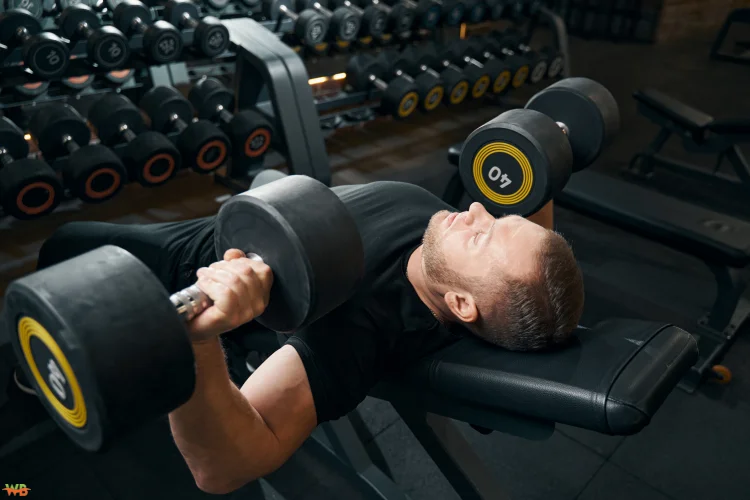
Building muscle requires persistence, perseverance, a balanced diet, resistance training, and rest. When debating ideal muscular development, most people refer to supplements. Though they help your workouts and recovery, supplements are not magic medicines. You must know which supplements work and how they fit into your exercise program to make wise decisions.
How supplements affect muscle growth
Understanding what supplements can and cannot do is essential for making informed fitness decisions. Supplements support muscle repair, enhance growth, and address potential dietary deficiencies. They work best when paired with a balanced diet and structured exercise routine. Reputable sites such as canadianmadelabs.com offer insights into clinically tested products, emphasizing the importance of reliable sources. Prioritizing safety and quality ensures supplements contribute effectively to your fitness goals without unnecessary risks.
Protein: Muscle building block
Protein is the cornerstone of all muscle-building supplements. Amino acids found in protein help muscles heal and flourish following exercise. Popular post-workout substitute whey protein is fast absorbed and has significant biological value. Overnight recovery calls for the slow-digesting protein casein. Pea or soy protein offers a comparable amino acid balance for people on dietary restrictions to help muscles grow.
For a safe, plant-based option, High Impact Plant Protein offers essential amino acids to support muscle growth, recovery, and overall strength. This safe, vegan-friendly supplement ensures optimal nourishment and lean muscle preservation.
Creatine: Strength and power fuel

Creatine is another common muscle-building aid. It increases adenosine triphosphate ATP, the fuel for brief bursts of great intensity. This rise enables athletes to lift greater weights and perform more repetitions, helping them build more muscles. Several studies have shown the safety and effectiveness of creatine, so it is basic for strength and muscle growth.
BCAAs for recovery
While a diet high in proteins often supplies enough amino acids, branched-chain amino acids (BCAAs)—leucine, isoleucine, and valine—have specific advantages. These essential amino acids promote healing and reduce muscular soreness, enhancing training. BCAAs enable individuals to retain lean muscle mass while cutting fat on diets where one counts calories. Before or during exercise, BCAAs can enable you to push through demanding sessions.
Pre- and Post-Workout Supplements Support
Efficacy depends on proper timing. Pre-workout pills often include caffeine, beta-alanine, and other ingredients to increase attention, endurance, and energy. Post-workout supplements, on the other hand, restore glycogen and rebuild muscle tissue using protein, carbohydrates, and electrolytes. Knowing your body’s needs during an exercise could help you to enhance your supplementing plan.
The value of micronutrients

Macronutrients like protein and creatine should not replace micronutrients in importance. Essential for muscle activity, recovery, and general health are vitamin D, magnesium, and zinc. These vitamin deficits slow your development, emphasizing the need for a balanced diet and certain supplements.
Exploring supplements safely
Given so many choices, one might easily get overwhelmed. First comes quality; examine brands and read labels. Search for outside certifications and tests to confirm supplement potency and safety. Before beginning new supplements, see a doctor or nutritionist if you take medicines or have pre-existing conditions.
Conclusion
In essence, supplements can help you build muscle, but they should enhance a good training, diet, and recovery schedule. Meeting your micronutrient demands and using tested supplements such as protein, creatine, and BCAAs will help you perform better and advance. Using the right approach, vitamins might support you in reaching your fitness objectives.
FAQs
1. Can I use supplements if I don’t follow a strict workout plan?
- Supplements are designed to enhance the effects of a structured fitness regimen. While they can provide essential nutrients and support general health, they won’t significantly contribute to muscle growth without consistent exercise. To maximize their benefits, pair supplements with a well-thought-out workout and recovery plan.
2. Are natural food sources better than supplements?
- Natural food sources are crucial for maintaining a balanced and nutrient-rich diet. Supplements, however, can be helpful when it’s challenging to meet your nutritional needs through food alone. For instance, someone with a busy lifestyle or specific dietary restrictions might find an efficient way to bridge gaps in their diet.
3. Can supplements help with mental focus during workouts?
- Yes, many supplements, especially pre-workout blends, are formulated to improve mental focus, energy, and endurance. Ingredients like caffeine, L-theanine, and beta-alanine can sharpen concentration and reduce fatigue, enabling you to stay motivated and perform better during intense training sessions.
4. How do I know if I’m taking the right dose of a supplement?
- Proper dosage depends on factors such as age, body weight, activity level, and fitness goals. Most supplements include recommended serving sizes on their labels, but these are general guidelines. Consulting with a healthcare professional or nutritionist can help you determine the right dosage tailored to your needs, ensuring safety and effectiveness.
5. Are there any supplements suitable for beginners?
- For beginners, it’s best to start with foundational options like protein powders, creatine, and multivitamins. Protein aids muscle recovery, creatine boosts energy and strength, and multivitamins ensure overall nutritional balance. These are easy to incorporate into your routine and provide the building blocks needed for steady progress as you develop your fitness habits.

